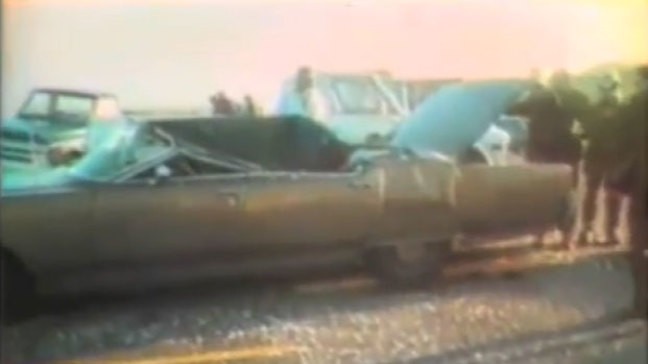Hive mind: Difference between revisions
Amwelladmin (talk | contribs) No edit summary |
Amwelladmin (talk | contribs) No edit summary |
||
| Line 4: | Line 4: | ||
The theory of consciousness that asserts that a new and better personality [[Emergence|emerges]] from the networked personalities of those in the organisation and generates ideas that are, therefore, not traceable to any particular individual mind in the hive. | The theory of consciousness that asserts that a new and better personality [[Emergence|emerges]] from the networked personalities of those in the organisation and generates ideas that are, therefore, not traceable to any particular individual mind in the hive. | ||
The theory seems nice, and accords with evolution and so on, but it is often quite hard to identify any such | The theory seems nice, and accords with evolution and so on, but it is often quite hard to identify any such [[emergent]]ly brilliant ideas, since the first thing that anyone will do should they stumble on a brilliant idea that has formed unbidden out of the collective is to claim credit for it. | ||
What we are left with, therefore is a welter of transparently preposterous ideas that emerge | What we are left with, therefore is a welter of transparently ''preposterous'' ideas that emerge from the hive mind without ''anyone'' claiming credit for them. | ||
[[Debt value adjustment|Debt value adjustments]]. [[Enron Corporation|Mark-to-market accounting for non-existent forward markets]]. [[Performance appraisal|Performance appraisals]]. [[Goals|SMART]] goals. [[Non-fungible token]] | [[Debt value adjustment|Debt value adjustments]]. [[Enron Corporation|Mark-to-market accounting for non-existent forward markets]]. [[Performance appraisal|Performance appraisals]]. [[Goals|SMART]] goals. [[Non-fungible token]]s. [[Environmental, social, and corporate governance]]. | ||
These ideas will persist and flourish as long as plausible livelihoods can be made out of them, but they have a habit of imploding, catastrophically. Here is where the hive mind comes into its own: as an emergent property of a super-brain, '' | These ideas will persist and flourish as long as plausible livelihoods can be made out of them, but they have a habit of imploding, catastrophically and without warning. Here is where the hive mind comes into its own: as an emergent property of a super-brain, these bad ideas ''are no-one’s fault''. | ||
In vain will regulators, auditors, and prosecutors look culprits among the dazed staff, stumbling around outside the building clutching [[Iron Mountain box|Iron Mountain boxes]]. | In vain will regulators, auditors, and prosecutors look for culprits among the dazed staff, stumbling around outside the building clutching [[Iron Mountain box|Iron Mountain boxes]]. | ||
===The exploding whale=== | ===The exploding whale=== | ||
Revision as of 10:46, 4 January 2023
|
|
Hive mind
/haɪv/ /maɪnd/ (n.)
The theory of consciousness that asserts that a new and better personality emerges from the networked personalities of those in the organisation and generates ideas that are, therefore, not traceable to any particular individual mind in the hive.
The theory seems nice, and accords with evolution and so on, but it is often quite hard to identify any such emergently brilliant ideas, since the first thing that anyone will do should they stumble on a brilliant idea that has formed unbidden out of the collective is to claim credit for it.
What we are left with, therefore is a welter of transparently preposterous ideas that emerge from the hive mind without anyone claiming credit for them.
Debt value adjustments. Mark-to-market accounting for non-existent forward markets. Performance appraisals. SMART goals. Non-fungible tokens. Environmental, social, and corporate governance.
These ideas will persist and flourish as long as plausible livelihoods can be made out of them, but they have a habit of imploding, catastrophically and without warning. Here is where the hive mind comes into its own: as an emergent property of a super-brain, these bad ideas are no-one’s fault.
In vain will regulators, auditors, and prosecutors look for culprits among the dazed staff, stumbling around outside the building clutching Iron Mountain boxes.
The exploding whale
For a more distant example, take the celebrated exploding whale of Lane County, Oregon, from 1970. See the entertaining news report in the panel.
What is most amazing here is not that onlookers, held behind barriers a quarter of a mile away, had to run for their lives while brick-sized lumps of stinking, fetid, whale flesh rained down on them from from the sky, but that no-one — not the highways authority, not the project manager, not the forklift driver, not the reporter, not the film crew, not the gelignite vendor, not those hundreds and hundreds of spectators, fleeing for their lives — not one asked: “you are proposing to detonate a rotting sperm whale with half a ton of dynamite. Have you completely lost your mind?”
Well, one man did, and this is where the irony gets positively Homeric.
That fellow, one Walter Umenhofer, was a military veteran with explosives training. He came to the area to take advantage of a “Get a Whale of a Deal!” promotion in a nearby car dealership. When he heard the plan, he warned anyone who would listen that half a ton of dynamite was far too much. Umenhofer suggested four kilogrammes would be plenty.
The hive mind knew best: his advice went unheeded. They went with half a ton.
Miraculously no-one was hurt during the blast, which showered the earth with brick-sized bombs of rotten blubber over a radius of half a kilometre.
There was just one casualty: a brand-new Oldsmobile Regency 98, that day acquired by one Walter Umenhofer, parked up while he beseeched the project manager not to be so stupid, was flattened by a hunk of meat the size of a truck tyre.
A whale of a deal, indeed.
